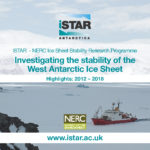Melting of ice shelves in West Antarctica speeds up and slows down in response to changes in deep ocean temperature, and is far more variable than previously thought, according to new research published this week in the journal Nature Geoscience. Scientists studying seawater temperatures in the Amundsen Sea – part of the West Antarctic Ice… Read more »
Read Full »Antarctic seals can help predict ice sheet melt
Two species of seal found in Antarctic seas are helping scientists collect data about the temperature and salinity of waters around vulnerable ice sheets in West Antarctica. Environmental scientists at the University of East Anglia (UEA) have been investigating ways of studying warm, salty, deep water in the Amundsen Sea, in the Southern Ocean. Understanding… Read more »
Read Full »Joint UK-U.S. Antarctic programme to study future sea level rise
A new UK-U.S. Antarctic research programme to improve the prediction of future sea-level rise is launched this week (Monday 30 April 2018) at British Antarctic Survey (BAS), Cambridge. The £20 million (approx. $25 million) 5-year research collaboration, funded jointly by the UK Natural Environment Research Council (NERC) and the U.S. National Science Foundation (NSF), brings… Read more »
Read Full »
iSTAR Highlights: 2012-2018
Although iSTAR is gradually coming to an end, new insights into the workings of the West Antarctic Ice Sheet and its interactions with the ocean are still emerging from our four science projects. We expect yet more exciting discoveries from iSTAR to be announced in the next years, but we have started to look back… Read more »
Read Full »Maps reveal landscape beneath Antarctica’s weak underbelly
A UK team of researchers has produced high-resolution maps of the bed beneath a major glacier in West Antarctica, which will help them predict future sea-level rise from this region. Radar surveys of the land beneath Pine Island Glacier have revealed a diverse landscape under the ice with some surprises. The results are published today… Read more »
Read Full »